Easy Homemade Baby Food Recipes & Tips For Starting Solids
This post may contain affiliate links. Read the full disclosure
Starting solids is an exciting milestone for babies and parents, however, it can also be daunting not knowing where to start or what foods are suitable. Knowing you are feeding your baby all the good stuff is important too, ensuring you are providing wholesome baby food to give them the best start in life.
These homemade baby food recipes will get you off to a great start with starting solids along with tips on introducing solids to your baby.
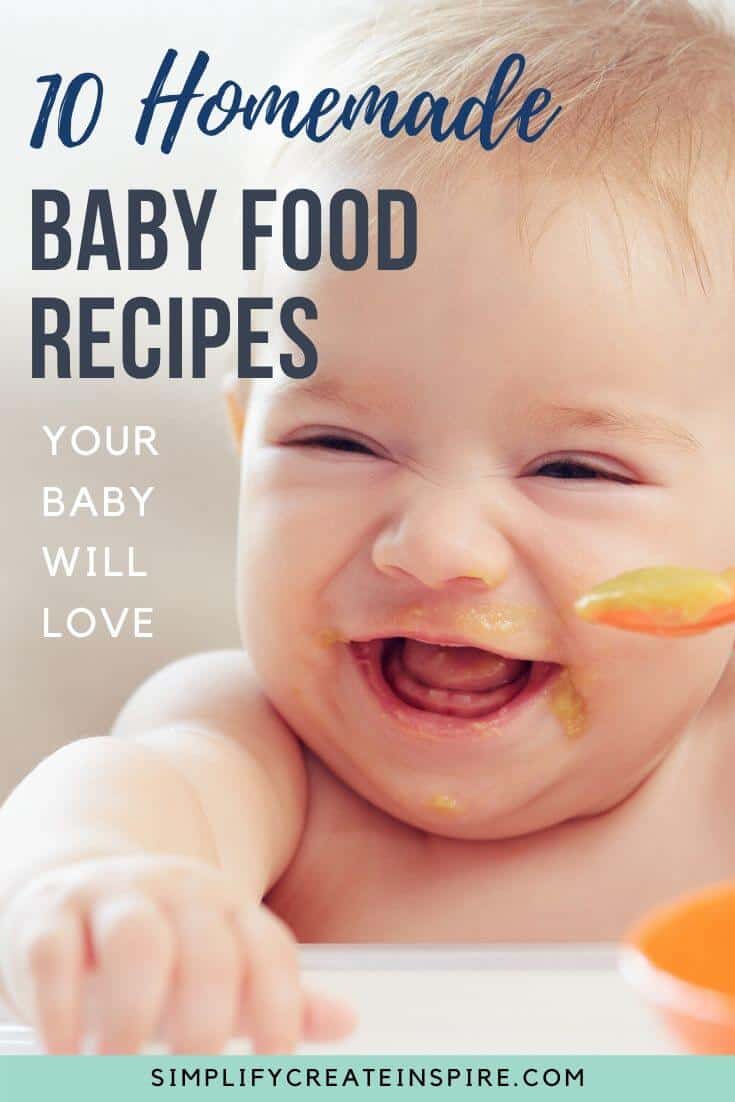
HOME COOKED BABY FOOD RECIPES
When starting solids, you have the choice of using pre-made baby food products, homemade baby food purees, or a combination of the two.
Back when I was a first-time mum, making my own homemade baby food recipes seemed like the perfect solution, both for cost-effectiveness and to ensure my baby was getting all-natural ingredients without any nasty preservatives or added sugars.
We simply needed some home-cooked baby recipes to get us started.
This was quick and easy, and we were able to freeze bulk lots of baby food in advance, which was also a great way to simplify life.
After all, we are big fans of freezer cooking in this household.
Fast forward 5 years and we have done the majority homemade baby food purees for both of our two girls when first starting solids, but with the occasional convenience of a premade pouch or jar when travelling or out and about.
To give you the easiest start with your own baby-feeding solutions, here are some of my favourite baby food purees and starting solids recipes:
How To Make Your Own Baby Food At Home
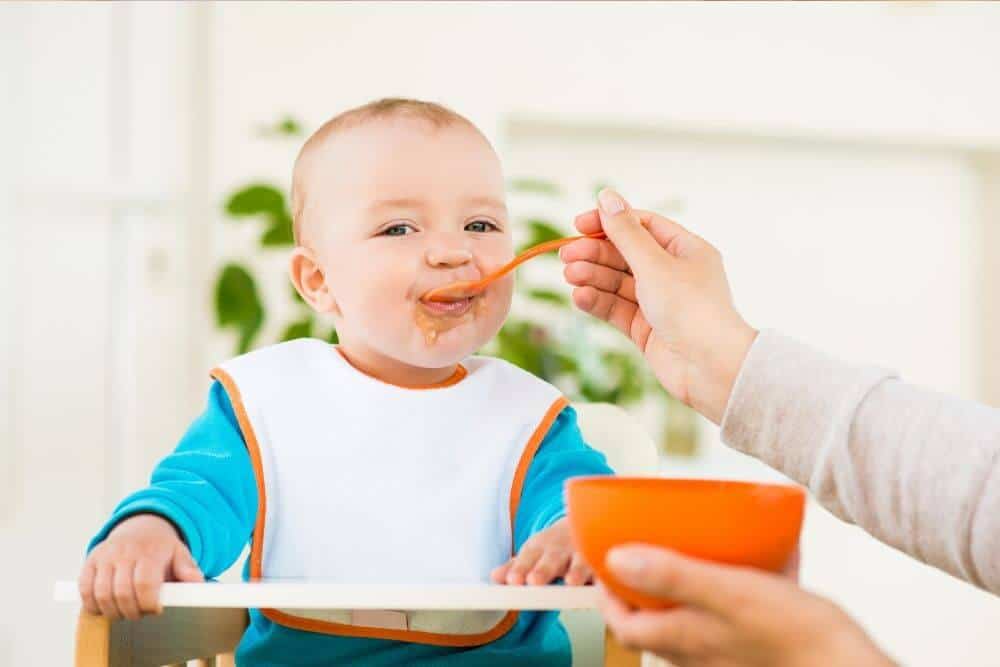
To create your own homemade baby food at home, you will need a blender or food processor and a way of steaming vegetables before you puree them.
We typically use a stove-top steamer which takes about 10-15 minutes depending on the vegetable, and a Baby Bullet blender when we are making our baby food at home.
The Baby Bullet is super fast and it comes with the perfect size food pots and containers for different batches.

Initially, most of what we made were Baby Bullet recipes that came with the blender recipe book, until we decided to experiment with a few interesting baby food recipes of our own.
If you are planning to make up bulk lots of food and freeze them, you may also want some extra freezer-safe baby food containers.
These Mumi&Bubi storage containers were what we used and they worked perfectly for serving sizes. They almost look like giant ice cube trays, which would also work.
Or get silicone baby food containers, similar to the ones you get with the Baby Bullet.
You can freeze in batches then just pop out the servings you need to defrost and serve to bub.

How To Introduce Your Baby To Solid Food
There can be the frustration of getting more food on you or the floor, during those early days of introducing solids.
You start to wonder if your baby is getting enough nourishment when hardly anything seems to end up in their mouth, while you battle a clenched jaw and crying.
And the big one – wanting to ensure your baby is getting a wide range of age-appropriate first foods in their new expanding diet, prepared in a way that maximises the good stuff, with a variety of healthy foods. That’s a lot of pressure!
We started off giving our daughters baby rice cereal mixed with fresh breast milk initially as their first attempt at solids but there isn’t anything blander.
It is a good starting point though, as the breast milk with the cereal keeps it somewhat familiar as you start to add texture, with the thin consistency, making it gradually thicker.
There is plenty you can do as a parent or caregiver to help transition your baby to solid food in a positive manner. Check out the tips below:
When to Start Solids
Your baby should be around 6 months old when starting solids.
Before this time your baby will get all the nutrients they need from breastmilk or infant formula.
Prior to this time, your baby’s digestive system is not yet prepared for solid baby food.
Signs your baby may be ready to start solids are when:
- They begin to show interest in the food you are eating
- They seem to still be hungry after a normal feed of breast milk or formula
- They start putting everything in their mouth.
They will also be able to hold their head up on their own and can sit with support, and will show a reduction in the tongue thrust reflex of pushing everything out of the mouth.
Frequency of Solids
When first starting solids, one meal a day is adequate for babies around the 6 month stage until they begin to show more interest and eat larger amounts.
Between 6 to 8 months, increase your baby’s meals to 2-3 per day.
Between 9 to 12 months, increase your baby’s meals to 3 per day, with snacks in between.
What Should You Be Feeding Your Baby?
When it comes to providing your baby with appropriate first food, you can make baby food at home with a blender or food processor, ensuring the food is pureed completely, with no lumps.
This is especially important early on.
As your baby gets older, the food can have a thicker, coarser texture.
Refer to your local health professional or government website for a list of recommended first foods and those to be avoided.
For example, you may wonder if your baby can have meat as part of their diet.
Generally, meat can be a good source of nutrients and vitamins, which can help boost brain development and strengthen the immune system.
However, meat can be coarser than other baby foods, which is why it’s important to consider different ways how to prepare them, depending on their age.
So, if you’re only introducing solid food to your baby, a variety of meat purees from Serenity Kids and other similar providers may be an excellent option.
Tips For Starting Babies On Solids
When your baby is ready to start eating solids, it can be a little daunting. What should you give them? How much should you give them? Will they like it?
Here are a few tips to get you started:
- Start with simple foods. Pureed fruits and veggies are a good place to start.
- Consider texture when introducing solid foods. It’s important to provide your baby with food with new texture as it can help them learn how to chew and their jaws and teeth to develop. Because of this, you should choose solid foods with good texture. For instance, you can begin with pureed foods and then serve them with mashed foods once they are ready for greater diversity. Over time, you can move on to chopped and minced foods. In doing so, your baby will be able to eat a wide variety of healthy foods.
- Introduce new foods slowly. Start with one new food at a time and wait a few days in between to make sure your baby doesn’t have any allergic reactions.
- Don’t worry if they don’t eat much at first. Babies are small and their stomachs are even smaller. They don’t need much food to start with
- Be prepared for some mess. It’s inevitable that some food is going to end up on the floor, or your clothes, or in their hair. Just roll with it and know that it’s all part of the process. Besides, it’s just natural for your baby to eat using their hands or fingers. Hence, expect the mess as they learn to eat solid foods. Their mealtime will become less messy as time goes by.
- Don’t get discouraged if your baby doesn’t like a particular food. It can take a few tries for them to get used to the taste and texture of new foods. And especially getting used to the texture of solid food in the first place.
- Be wary of choking hazards: You should always watch your baby when they’re eating. They have a small windpipe which makes it easy for them to choke. To avoid this, make sure to sit your baby up while eating, slice food into small pieces and mash hard fruits finely. Be aware of some solid foods that might cause choking, such as popcorn, nuts, seeds, and oval foods, like berries and grapes so these should be avoided until your baby is older.
- Have fun with it! Getting your baby to try new foods can be a challenge, but it can also be a lot of fun. Be creative and explore different flavours and textures with them.
BABY FOOD RECIPES FOR 4-6 MONTH-OLDS
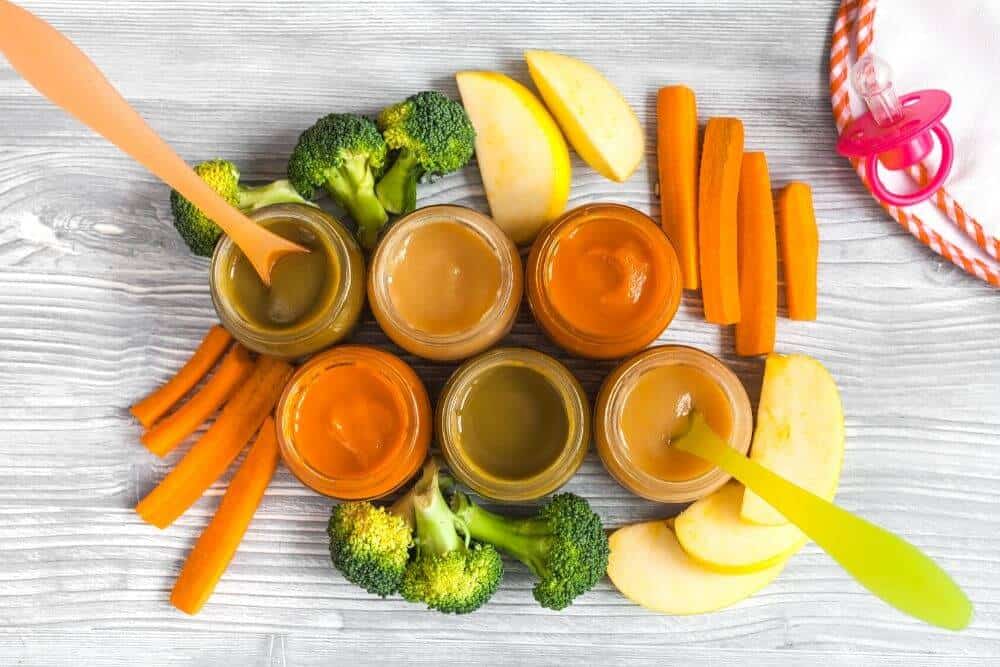
These first few baby puree recipes are perfect for those early days when you are just starting your baby on solids and they seem ready to roll.
Usually, this occurs between 4 to 6 months, but fine to continue beyond this stage as you introduce more foods.
These are good flavours to start with your baby food recipes 4 months and beyond.
For each of these recipes, simply add ingredients to a blender or food processor and puree to desired consistency.
Banana and Avocado Puree
- 1 whole banana
- 1 peeled and pitted avocado
- 80ml water
Banana and Kiwi Fruit Puree
- 1 whole banana
- 1 peeled kiwi fruit.
- 80ml water
Sweet Potato and Apple Puree
- 1 medium apple
- 1 medium sweet potato
- 250ml water
Boil or steam both potato and apple until very soft. Puree until smooth.
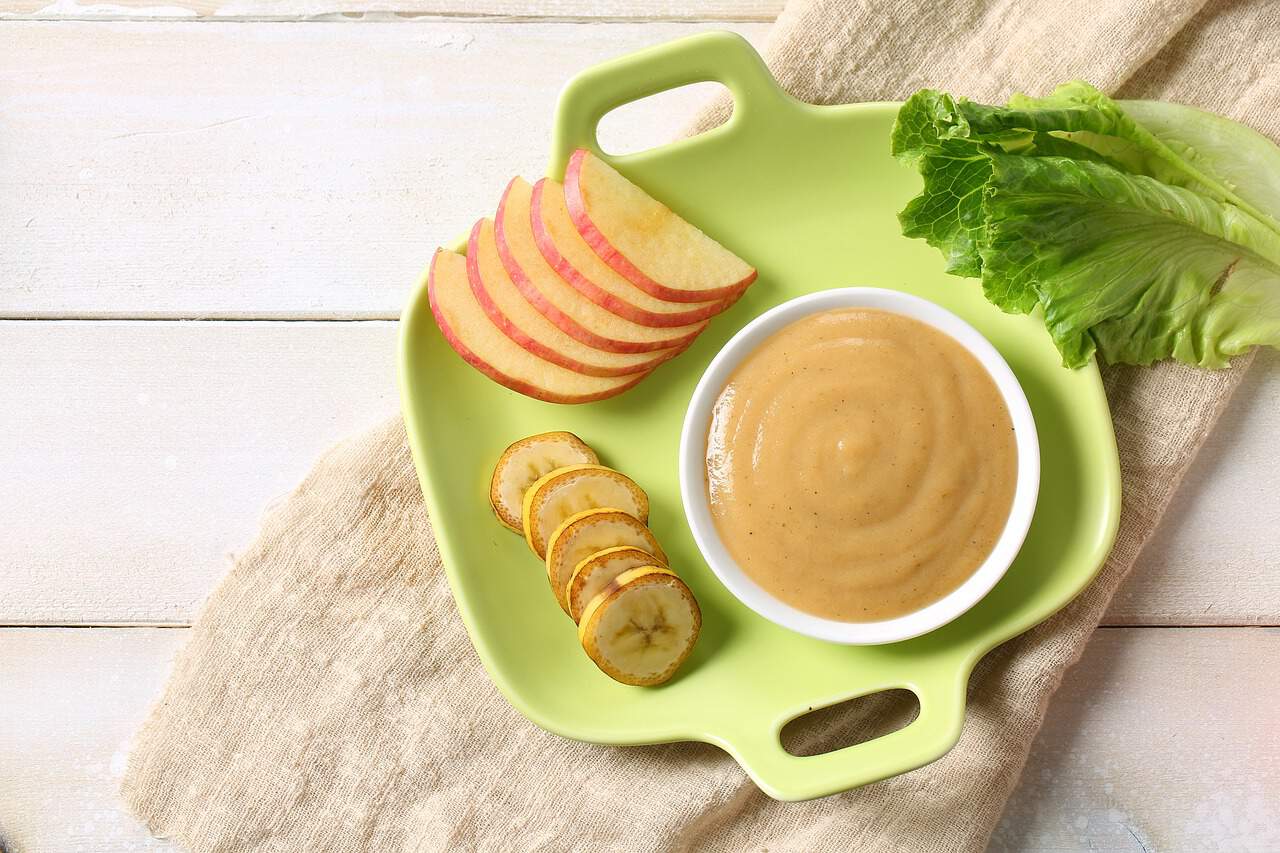
Squash and Carrot Puree
- 1 yellow squash
- 1 peeled carrot
- 80ml water
Boil or steam carrot and squash until soft. Add to blender/processor and puree to desired consistency.
Brown Rice, Banana and Kiwi Fruit Puree
- 1/2 cup brown rice
- 1 whole banana
- 1 whole kiwi fruit, peeled
Add rice to a food processor and mill to a fine powder. Add rice powder to a pot of water and cover until it boils. Turn down the heat and cook for a further 20 minutes.
Once cooled, add cooked rice to the blender with banana and kiwi fruit and puree to desired consistency.
Zucchini and Pear Puree
- 1 zucchini
- 1 pear, peeled and cored
- 80 ml water
Steam or boil zucchini and pear until soft. Add to blender/processor and puree to desired consistency.
Broccoli and Watermelon Puree
- 1/3 head broccoli
- 1 cup watermelon, seeds removed
Steam/boil broccoli until soft. Add broccoli and watermelon to bender/processor and puree to desired consistency.
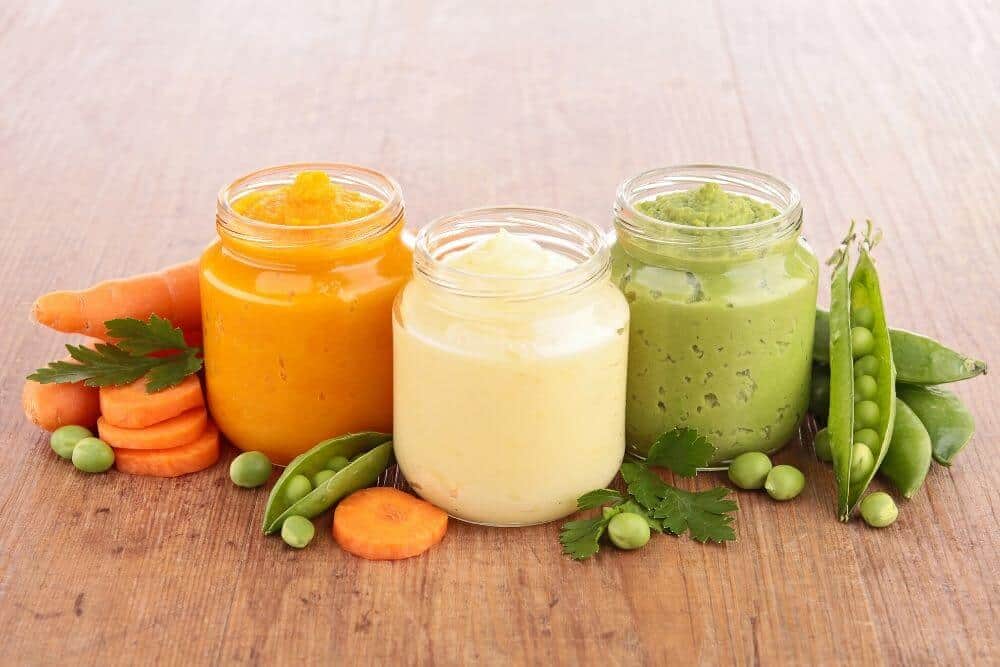
BABY FOOD RECIPES FOR 6-10 MONTH OLDS
These next few baby puree recipes are for once your baby has adapted to their early basic solids and you can start introducing more interesting flavours and textures.
Depending on your baby’s preferences, you can puree these combos for shorter periods to create soft chunks and thicker textures.
At this age, you will also want to have some more interesting baby food recipes to keep their tastes growing too.
Pear and Oats Puree
- 1 pear, peeled and cored
- 1/2 cup of whole oats
Run oats through a food processor to mill into a finer texture. Add to a pot of water and boil, then turn down and cook for a further 20 minutes. Steam pear until soft.
Add oats and pear to blender/processor and puree to desired consistency.
Chicken, Brown Rice and Carrot Puree
- 1/ cup brown rice, cooked
- 1 carrot, steamed
- 1/2 cup diced or shredded cooked chicken breast
- 1/4 cup water
Add cooked/steamed ingredients to blender with the water and puree to desired consistency.
Turkey, Chickpea and Sweet Potato Puree
- 1/2 cup diced or shredded cooked turkey breast
- 1/2 cup chickpeas
- 1 medium sweet potato, steamed
Add ingredients to blender/processor and puree to desired consistency.
Cauliflower, Blueberry and Quinoa Puree
- 1/2 cup blueberries
- 1/3 head cauliflower, steamed
- 1/2 cup quinoa, cooked
Pre-cook quinoa and steam cauliflower until soft. Add both to blender or food processor with berries and puree to desired consistency.
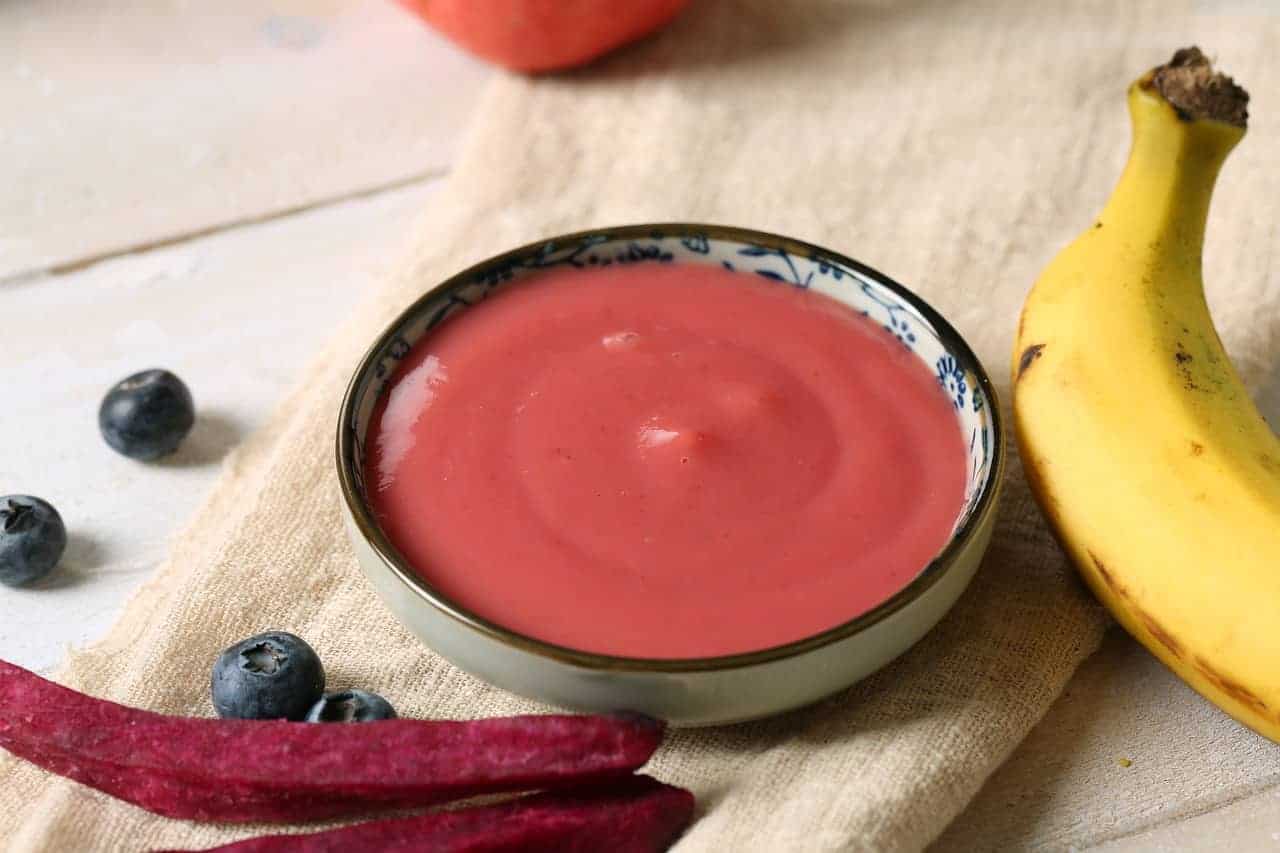
Lamb, pumpkin and Rosemary Puree
- 1 cup cooked lamb
- 1/2 cup steamed pumpkin
- 5 rosemary leaves
Add all ingredients to a blender/food processor and puree to desired consistency.
Great Foods To Include In Baby Purees
Some of these great foods can be easily incorporated into your homemade baby food recipes.
Mix and match flavours that complement each other or add the natural sweetness of fruit flavours to a bland vegetable flavour to create delicious mixes that will help your baby explore their taste buds.
- Carrots
- Sweet potatoes
- Pumpkin
- Zucchini
- Butternut squash
- Peas
- Mango
- Pear
- Banana
- Avocado
- Apples
- Cherries
- Kiwi
- Green beans
- Broccoli
- Spinach
- Chickpeas
- Brown rice
- Quinoa
- Chicken
- Turkey
- Salmon
- Beef
- Lamb
- Oatmeal
- Rice cereal
- Strawberries
- Blueberries
- Raspberries
- Rice cereal
Tips For Getting Started With Making Homemade Baby Purees
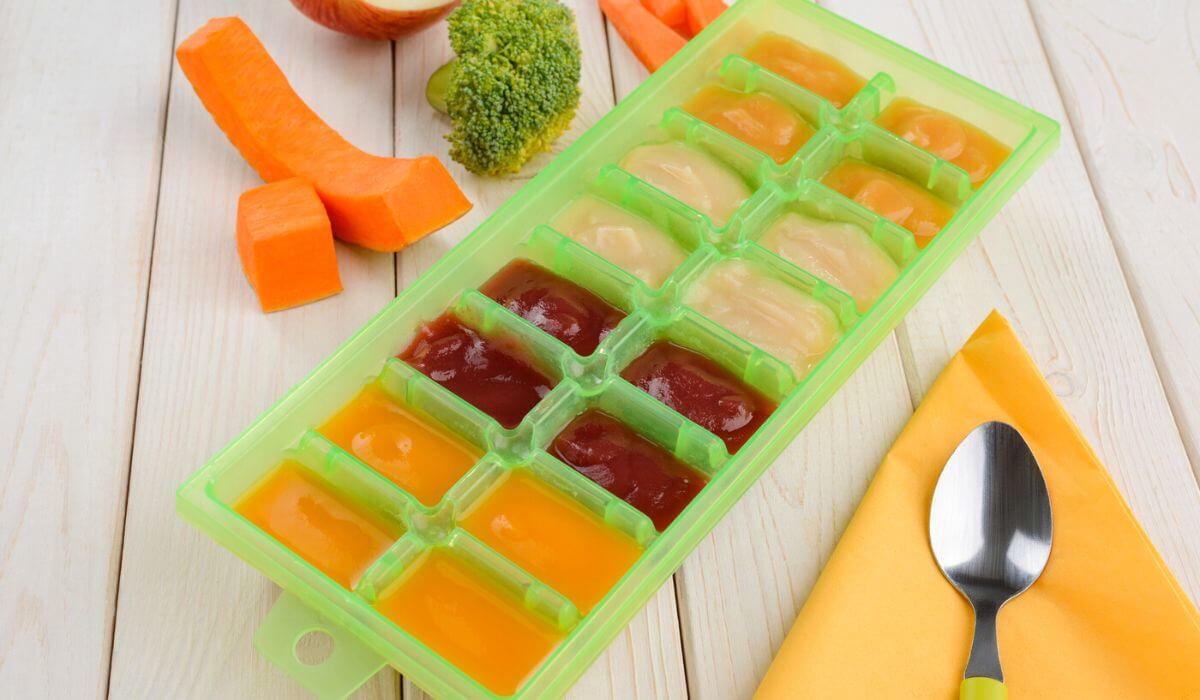
Here are some tips for simplifying your process of making your own purees and food combinations for your baby:
- Start by introducing foods separately first to make sure there are no allergic reactions
- After this, you can start creating some flavour combos with different baby food ideas
- If purees are too thick, add more water to get to the desired texture.
- Set aside some of the foods you are cooking for the rest of the family for use in baby meals to save time
- Store baby food in the refrigerator for use within 2 days
- Store in baby food containers in the freezer and defrost ready for use at a later time
- As your baby gets older and more adventurous with flavours, you can add multiple ingredients or other spices for extra flavour.
- Once your baby is older, baby lead weaning allows you to introduce more varieties of solids and textures similar to the foods the rest of the family is eating.
Pre-Made Baby Food: No Time For Homemade
While making homemade baby food is a wonderful option for meals at home, sometimes you do find yourself time-poor and running low on frozen portions.
Or perhaps you are out and about for long periods and don’t want to worry about the inconvenience of keeping your homemade baby food refrigerated until you need it.
Just like breastfeeding or bottle-feeding your baby, you have options.
This is where pre-made baby food is actually a great option.
Ditch the mum guilt! Not everything needs to be a homemade puree!
There is no reason why you can’t give your baby a mix of food you make and food you buy.
Just make sure you have a close look at what is going into the foods you are purchasing so you know your baby is still getting great quality ingredients and a variety of nutrients into their diet.
However in saying that, here in Australia it is quite strict what is available to purchase in our supermarkets which is a reassuring thing as a new parent, as that baby food aisle can be overwhelming!!
Once you do get into the swing of things with making your own purees, you might like to dig into the next step and start freezer cooking for the whole family! Who says you just need to freeze baby food?
This is one of our biggest time savers, especially back when we had a shift-working dad in the household!
Bulk freezer cooking means meal prep is done and time is free to spend instead focused on your little ones and their needs!
Ready for the next phase of introducing solids? Try these recipes for baby-led weaning:
- Healthy muffins for kids
- Afternoon snacks for kids
- Mango, banana, yogurt muffins
- Carrot, ham, cheese muffins
- Applesauce, banana and oat muffins
SEE ALSO:
- Sibling gifts to reduce new baby jealousy
- How to stay comfortable during a summer pregnancy
- Ways to make life easier with a newborn
- Lunch box recipes for school and daycare
- Printable lunch box ideas
- Baby essentials for the first 3 months
- Gifts for newborns
- Baby gender reveal party ideas
- Creative pregnancy announcement ideas
- Gifts for new mothers
- Books about becoming a big sister or brother

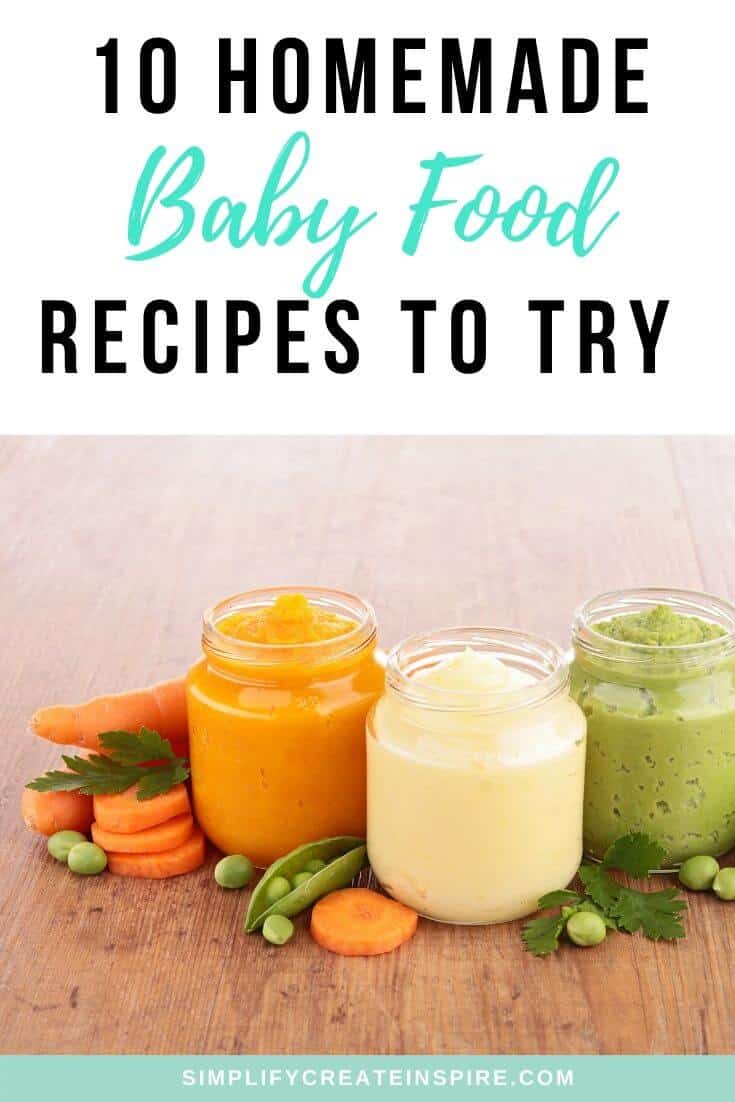
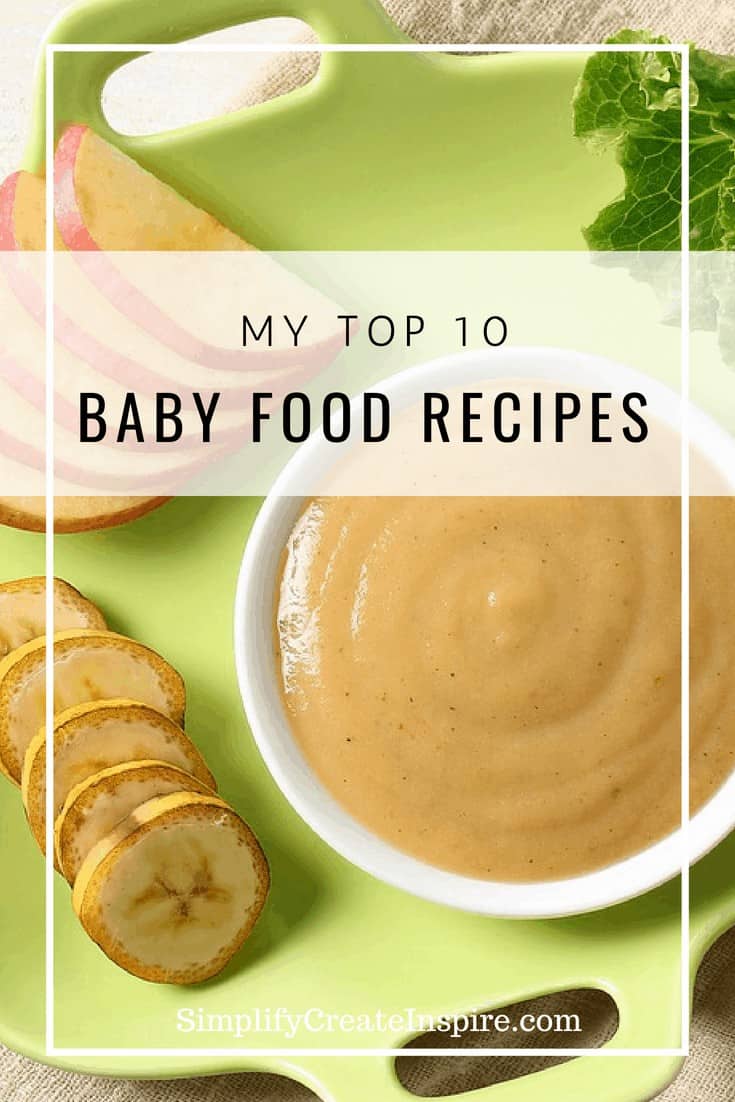

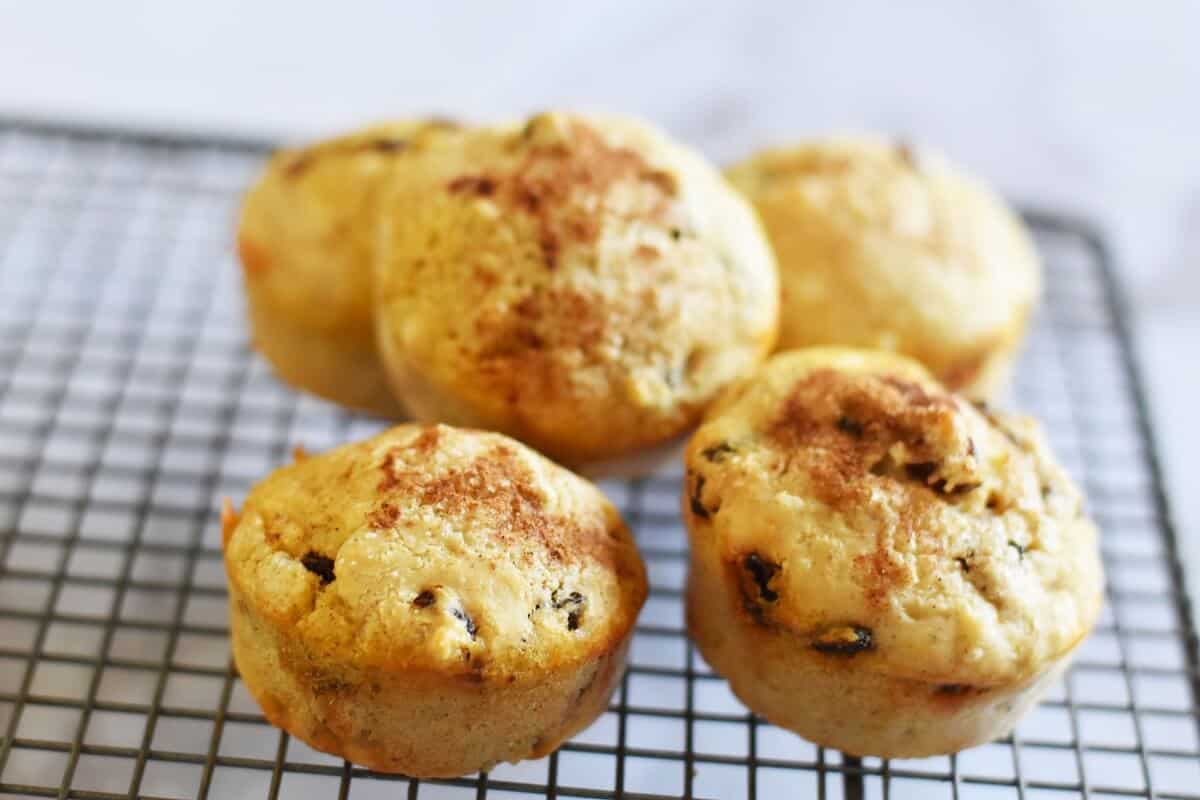
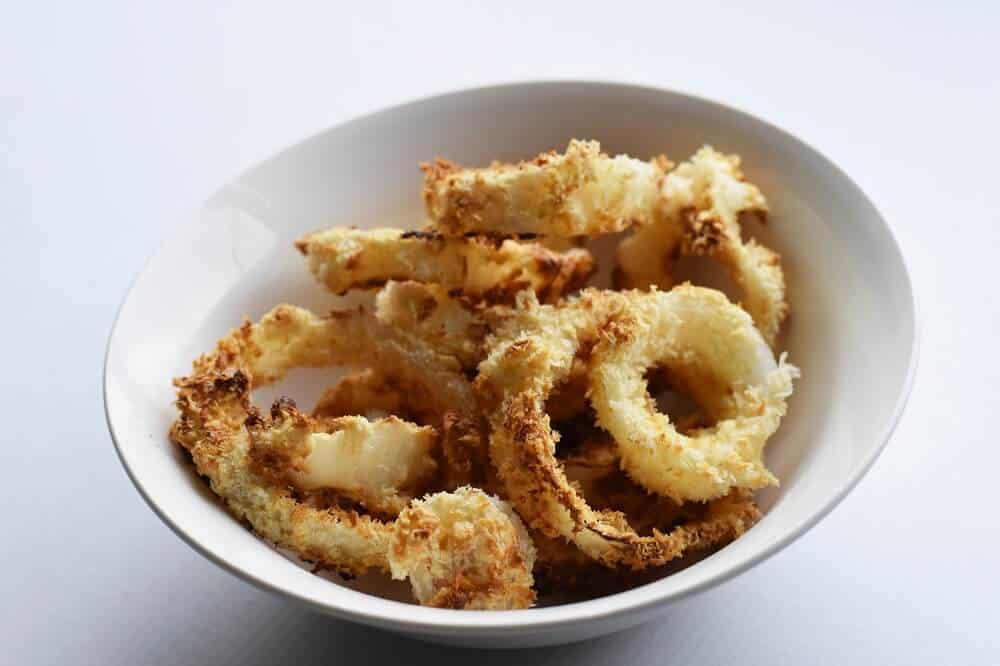
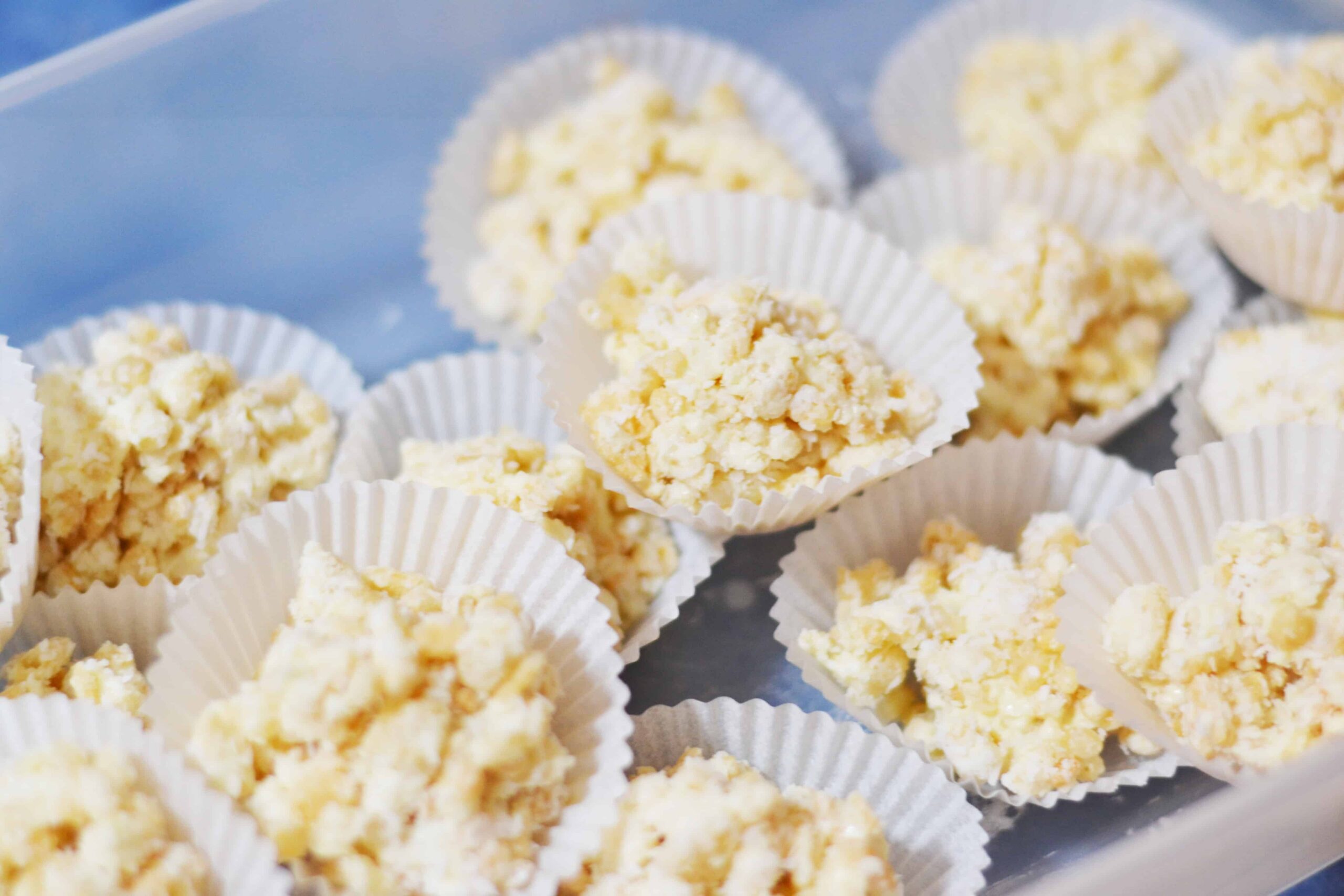

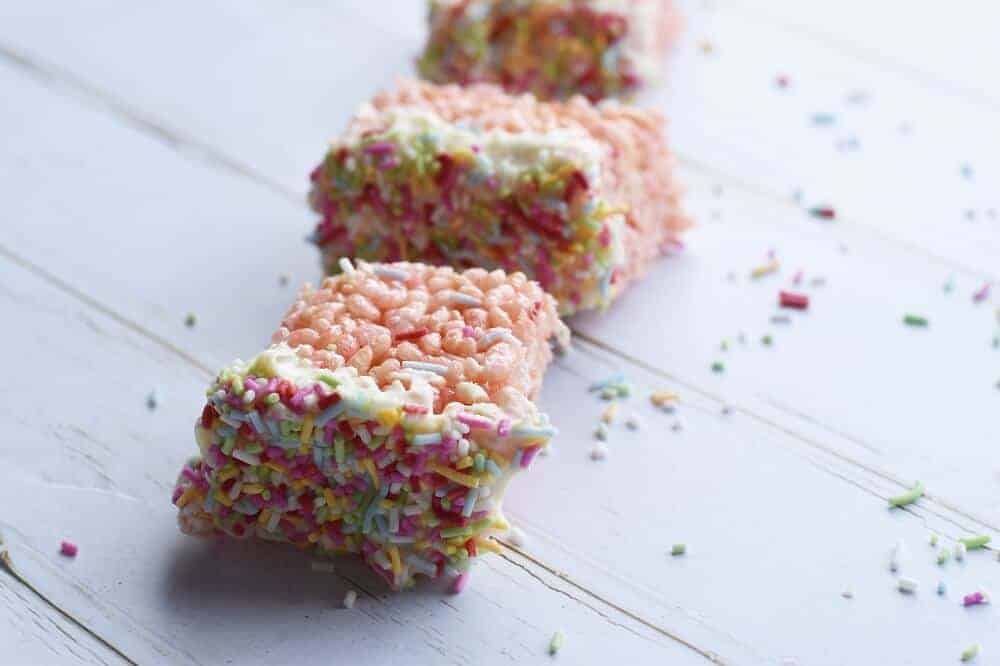
Oh this has taken me back! The amount of tme I spent steaming and mashing baby food, oh my gosh! The pouches were a life saver for us… Especially when travelling! Xx
It’s great experimenting with new foods as they get older too, but yes, pouches when out & about any day for us!
My first baby I made absolutely everything from scratch, but by the time number 2 came along we were relying on pouches a lot more! Some of the flavour combos sound horrid, but the kiddies seem to like them!
#TeamMM
Unique, indeed lol but I guess it all ends up in the same place. We pretty much did homemade at home & pouches on the go, so the aim is the same this time but being more time poor may make me go the same path ;)
Do you know what? I can’t even remember what purees I made Elliott! But these look great. I’ll definitely share.
Thanks Eva. There are so many combos I made that I couldn’t remember many of them but I’m sure I will do a follow up with some new combos when Violet is ready for solids.
What a fantastic post for those with super littlies! I used to steam and fork mash everything. The combinations I put together, BLEEURK! Visiting from #teamIBOT
Wow that’s keen. Gotta love time saving gadgets these days! Not sure I would have had the same patience lol
Great recipes! Im bookmarking :) We cant do Kiwi though sadly, my hubby is seevrely allergic and I have a slight allergy… booo…. they are so tasty!
Oh no, how sad you can’t have kiwi fruit. It’s so refreshing and sweet. It was a favourite for my eldest. But lucky there’s plenty of other awesome flavours to experiment with. Always fun :)
I always made my own baby food, because I just liked to know what was in it! Freezing bulk packs is just so easy.
This is great! Keeping for future reference. :) Thanks for sharing at Merry Monday, hope to see you again next week!
Great recipes you share.All foods are good for babies health.Every parent should make their own baby food for their kids.By preparing your baby’s food yourself, you know exactly what your baby is eating.
Thank you very much for sharing this informative article with us.